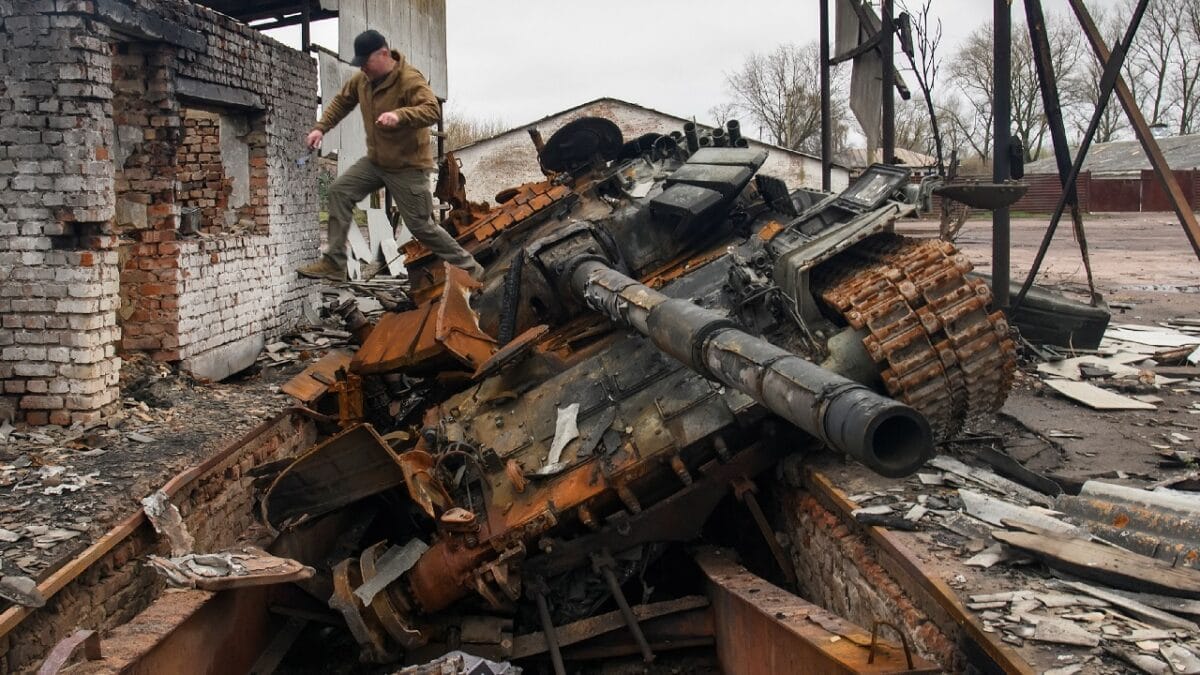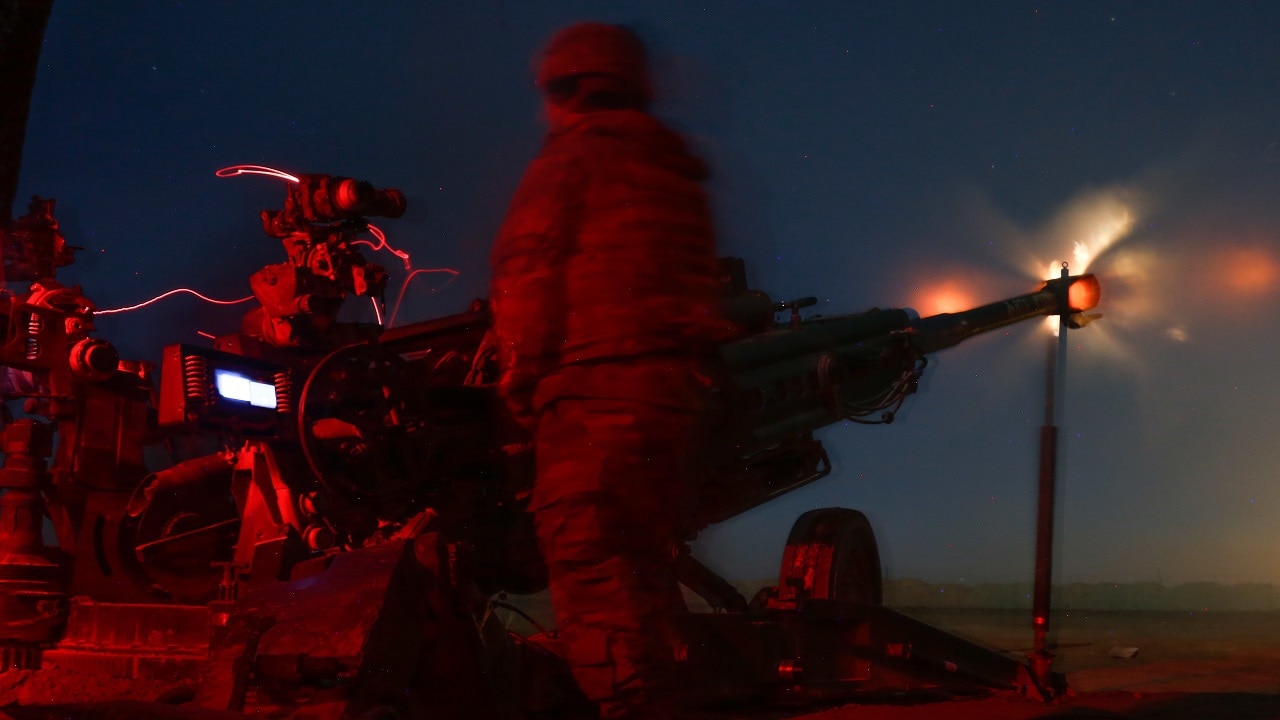On May 9, Russian President Vladimir Putin had a major opportunity to escalate his war in Ukraine in a bid for a definitive victory. May is V-E, or Victory in Europe, Day. The Soviet Union defeated Nazi Germany that day in 1945, and it is a major holiday now. It was widely suspected that Putin would use the holiday to call for mass mobilization or declare war. This would give Putin the legal room and political space to demand greater sacrifices from the Russian people, especially the use of conscripts in the war to solve Russia’s growing manpower problem.
Much to everyone’s surprise, Putin made no such moves. He still seeks victory with the force committed to date. This is unlikely. The Russian offensive employed many of its best units at the start. That effort ground to a halt around Kyiv, the Ukrainian capital, and Russia withdrew.
The second phase of the war was Russia’s more limited effort in the east, in Donbas. This has declined into small efforts to take small towns. At the start of this phase, there was large talk Russia might encircle a big part of the Ukrainian army east of the Dnieper River. This is now unlikely. Russia has not even completed the conquest of Mariupol. Ukraine has also begun to counter-attack.
A strategic victory, or at least breakthrough, looks increasingly unlikely with only the forces Putin has at hand. Yet he chose to avoid escalation. So the war seems increasingly like a stalemate. But Russia cannot win a war of attrition, given the massive Western economic and military support for Ukraine. Putin is stuck.
Time is on Ukraine’s Side
Russia’s population and gross domestic product are substantially larger than Ukraine’s. Hence the general assumption, early in the war, was that Russia would win. Sheer weight favored Moscow, as did surprise. Yet Russian bungling – its army’s poor coordination, logistical failures, and overstretch – squandered that opportunity.
Russia is now sliding into a proxy war with the West. It obviously cannot sustain a military-economic race against the West in Ukraine. The West can arm and aid Ukraine far beyond what Russia can mobilize domestically (unless China jumps in to help in a big way, which is highly unlikely). The various political problems bedeviling the Western aid pipeline are being worked out. Russia will soon face a flood of high-end Western weapons.
And the Ukrainians themselves will not surrender. They are deeply committed to fighting for their country. They are better led than the Russians. Their morale is high. The whole country is now mobilized. We hear stories about grandmothers making Molotov cocktails. If Putin drags this war on for years, the Ukrainians seem to be willing to do the same.
Ukraine as the Soviet-Afghan War of the 1980s
Russia has seen this sort of conflict before – when the Soviet military marched into Afghanistan in 1979 and soon found itself in an unwinnable quagmire against a tenacious foe unwilling to surrender and funded by outside powers. In that war, as in this one, Moscow faced the choice between slugging it out conventionally or a significant escalation bid to win. Unwilling to do that latter, it fought conventionally for a decade, until it tried and gave up in 1989.
In Ukraine, Putin could escalate with a weapon of mass destruction or mass mobilization at home. The first course risks NATO involvement and a slide toward wider, possibly nuclear conflict. The second course means growing dislocation at home, worsened as the sanctions bite. The IMF is predicting an extreme contraction of the Russian economy.

A man jumps from a Russian T-72 tank destroyed during Russia’s invasion, in the village of Yahidne, Ukraine April 20, 2022. REUTERS/Vladyslav Musiienko
Can’t Stop Now
Putin’s best shot is probably to stop the war before the costs get worse at home, and then to see if he can hold onto his gains. But even this would be hard. His conquests will not be recognized globally nor by Ukraine, as his snatching of Crimea in 2014 was not. Russia would face not a border, but a ‘line of control’ running all through Ukraine. Behind that line would be devastated, unproductive Ukrainian cities like Kherson filled with unhappy, likely resistant Ukrainians. In front of it would be the Ukrainian army poking all along the frontier.
So Putin cannot end the war – Ukraine will not just settle to be partially dismembered. And he cannot escalate, because he fears NATO intervention and unrest at home. He is stuck in a quagmire, and it will only worsen as it did in Afghanistan.
Dr. Robert E. Kelly (@Robert_E_Kelly; website) is a professor of international relations in the Department of Political Science at Pusan National University. Dr. Kelly is now a 1945 Contributing Editor as well.

